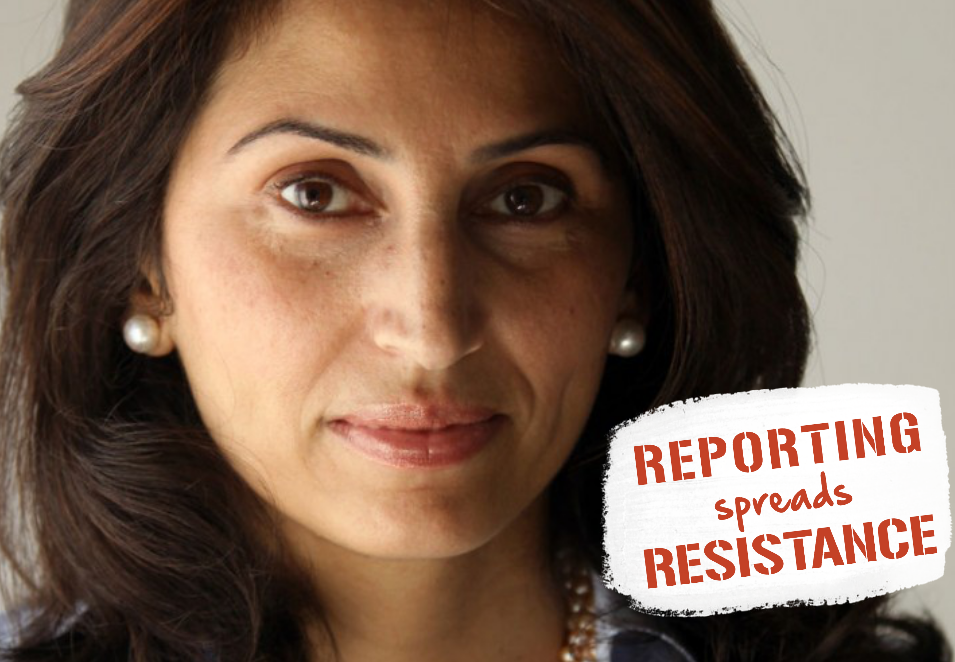Last year at this time, a Mondoweiss video report showed one of the checkpoints Palestinian day laborers have to use to enter Israel. It takes hours for the thousands of men seeking day work to get through the checkpoint.

And since they’re not allowed to stay in Israel overnight, they queue at two or three in the morning, sleeping on cardboard, lighting fires with scrap wood, until the checkpoint opens at six.
The first time I saw this arbitrary, inhumane practice, it burned into my brain. Today, twenty years later, it still infuriates me. And I am grateful that because of Mondoweiss, people far from Palestine have seen its impact.
As Malcolm X said: “If you’re not careful, the newspapers will have you hating the people who are being oppressed, and loving the people who are doing the oppressing.” Thanks to Mondoweiss, people around the world have the opportunity to avoid this manipulation and learn the facts about Israel’s treatment of Palestinians. I’m writing now to ask that you join me in supporting the essential work Mondoweiss does.
Throughout my career, I’ve done all I can to get real Palestinian stories into public view. I’ve worked as a lawyer for the Palestinian peace negotiating team, I’ve taught at the university level, and I’ve spoken time and again to notable journalists with influential platforms. But even with some access to mainstream media, it’s a tough slog. In mainstream outlets, Palestinians have no names, no families, no reason for being, let alone fighting against the state that daily steals their home and livelihood. These media provide no context for events and rarely question the talking points offered by Israeli officials.
By reaching millions of people each year, Mondoweiss is taking on the responsibility the mainstream media shirks: educating the public about Palestine. The stories and videos published by Mondoweiss are the leading example of how discourse can be changed and is changing. Responsible journalism gradually opens people’s eyes to reality—including Israel’s illegitimate actions and lies.
At mondoweiss.net/ReportResist, you can see some highlights of the superb reporting spread globally by Mondoweiss this year. The task of documenting repression involves real risk, even for professional journalists with foreign passports but still more for Palestinians who just picked up a video camera out of a sense of urgency. Out of respect for the resistance represented in and by these stories, I urge you to review them.
Just one of the most compelling is the recording of children in Kufr Qaddum explaining their choice to join protests despite danger. Another is the interview Mondoweiss editors Phil Weiss and Adam Horowitz conducted with Imad Abu Shamsiya, the shoemaker and amateur videographer whose recording of an Israeli soldier executing a wounded Palestinian youth in Hebron went viral.
My own understanding of the struggle against Zionism was launched in 1987, when I first saw photographs of young children standing up to Israeli soldiers in the first intifada. I grew up in Canada and until then, my parents had sheltered me from the history of our family, displaced and then exiled from our home in Nazareth. But seeing those images made me ask the questions that led me to fighting for my homeland’s rights day in and day out. So I believe, at a personal and visceral level, in the power of images and stories shared over and over again.
If we are ever to awaken the world to what Israel stands for, we will do it with the power of our stories. I respect enormously the ability Mondoweiss has developed to gather these stories and share them more broadly all the time. You read Mondoweiss, so you know what this team is capable of and why increasing their reach is urgent. Join me today in growing Mondoweiss’s influence.
This article was first published on mondoweiss.net

